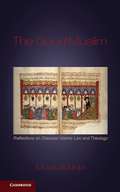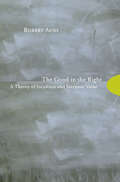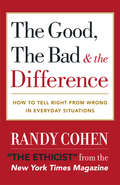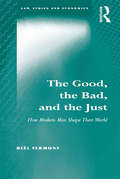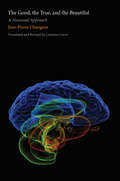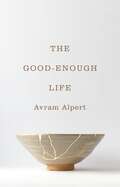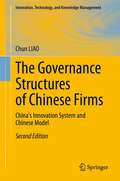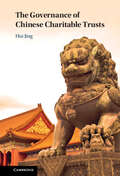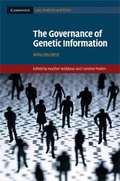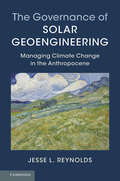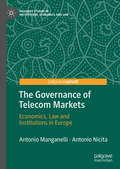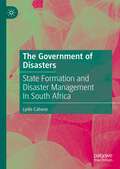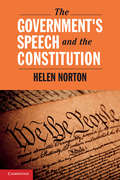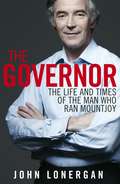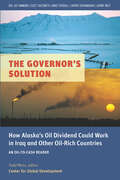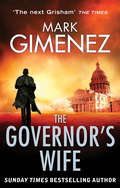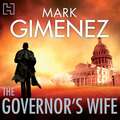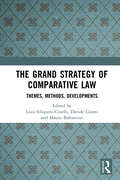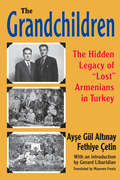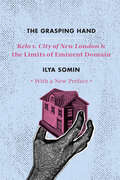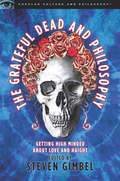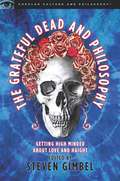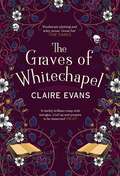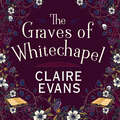- Table View
- List View
The Good Muslim
by Mona SiddiquiIn this unusual, thought-provoking and beautifully written book, Mona Siddiqui reflects upon key themes in Islamic law or theology. She has selected these topics, which range through discussions about friendship, divorce, drunkenness, love, slavery, and ritual slaughter, in part because they are of particular interest to her, and in part because they reveal fascinating insights into Islamic ethics, and the way in which arguments developed in medieval juristic discourse. These pre-modern religious works contained a richness of thought, hesitation and speculation on a wide range of topics, which were socially relevant but also presented intellectual challenges to the scholars for whom God's revelation could be understood in diverse ways. These subjects of course remain very relevant today, both for practicing Muslims and for scholars of Islamic law and religious studies, and the book shows just how these debates resonate in contemporary Islamic thought. Mona Siddiqui is an astute and articulate interpreter who relays complex ideas about the Islamic tradition with great clarity. These are important attributes for a book which, as the author acknowledges, charts her own journey through the classical texts, and reflects upon how the principles expounded there have guided her own thinking and impacted on her teaching and research.
The Good in the Right: A Theory of Intuition and Intrinsic Value
by Robert AudiThis book represents the most comprehensive account to date of an important but widely contested approach to ethics--intuitionism, the view that there is a plurality of moral principles, each of which we can know directly. Robert Audi casts intuitionism in a form that provides a major alternative to the more familiar ethical perspectives (utilitarian, Kantian, and Aristotelian). He introduces intuitionism in its historical context and clarifies--and improves and defends--W. D. Ross's influential formulation. Bringing Ross out from under the shadow of G. E. Moore, he puts a reconstructed version of Rossian intuitionism on the map as a full-scale, plausible contemporary theory. A major contribution of the book is its integration of Rossian intuitionism with Kantian ethics; this yields a view with advantages over other intuitionist theories (including Ross's) and over Kantian ethics taken alone. Audi proceeds to anchor Kantian intuitionism in a pluralistic theory of value, leading to an account of the perennially debated relation between the right and the good. Finally, he sets out the standards of conduct the theory affirms and shows how the theory can help guide concrete moral judgment. The Good in the Right is a self-contained original contribution, but readers interested in ethics or its history will find numerous connections with classical and contemporary literature. Written with clarity and concreteness, and with examples for every major point, it provides an ethical theory that is both intellectually cogent and plausible in application to moral problems.
The Good, the Bad & the Difference
by Randy CohenThe man behind the New York Times Magazine's immensely popular column "The Ethicist"-syndicated in newspapers across the United States and Canada as "Everyday Ethics"-casts an eye on today's manners and mores with a provocative, thematic collection of advice on how to be good in the real world.Every week in his column on ethics, Randy Cohen takes on conundrums presented in letters from perplexed people who want to do the right thing (or hope to get away with doing the wrong thing), and responds with a skillful blend of moral authority and humor. Cohen's wisdom and witticisms have now been collected in The Good, the Bad & the Difference, a collection of his columns as wise and funny as a combination of "Dear Abby," Plato, and Mel Brooks. The columns are supplemented with second thoughts on (and sometimes complete reversals of) his original replies, follow-up notes on how his advice affected the actions of various letter writers, reactions from readers both pro and con, and observations from such "guest ethicists" as David Eggers and the author's mom. Each chapter also features an "Ethics Pop Quiz," and readers will be invited to post their answers on the book's Web site. The best of them will appear in a future paperback edition of the book.The Good, the Bad & the Difference is divided into seven sections: *Civic Life (what we do in public) *Family Life (what we do at home) *Social Life (what we do in other people's homes) *Commercial Life (what we do in situations where money is a factor) *Medical Life (the rights and obligations of patients and caregivers) *Work Life (ethics for the professional sphere) *School Life (moral questions from and about kids)Each section provides a window into how we live today, shedding light on the ways in which a more ethical approach to the decisions we make, and to our daily behavior, can make a big difference in how we feel about ourselves tomorrow.From the Hardcover edition.
The Good, the Bad, and the Just: How Modern Men Shape Their World (Law, Ethics and Economics)
by Riël VermuntDrawing on multidisciplinary findings and ideas, this book discusses fair allocation of social resources, such as goods, services and information, in a novel and integrated way. The role of the essential features of allocation behavior: motivation, cognition and emotion, as well as morality and reactions to perceived unfairness are examined in the newly developed Justice Model. The author offers explanations as to why, how and to what extent, people, in an effort to attain justice, allocate social resources between self and others and among others. It is held that the allocation event, featuring actor, recipient and observer, as well as the resources to be allocated by an actor, can function as a guideline for the essentials of fair behavior. The work explores the conditions under which an actor may deviate from a just division of social resources thus instigating a reaction from recipients and observers. The study covers various levels of analysis ranging from the intra-personal to the societal. The book will be of interest to academics and researchers working in the areas of crime, law, justice, public policy and governance.
The Good, the True, and the Beautiful
by Jean-Pierre ChangeuxIn this fascinating and bold discussion, a renowned neurobiologist serves as guide to the most complex physical object in the living world: the human brain. Taking into account the newest brain research—morphological, physiological, chemical, genetic—and placing these findings in the context of psychology, philosophy, art, and literature, Changeux ventures into the unexplored territories where these diverse disciplines intersect. Changeux's book draws on Plato's notion that the Good, the True, and the Beautiful are celestial essences or ideas, independent but so intertwined as to be inseparable. Placing these essences within the characteristic features of the human brain's neuronal organization, the author addresses unsolved questions in neuroscience today. With imagination and deep insight, Changeux illuminates the evolution of the brain and deciphers what new developments in neuroscience may portend for the future of humanity.
The Good-Enough Life
by Avram AlpertHow an acceptance of our limitations can lead to a more fulfilling life and a more harmonious societyWe live in a world oriented toward greatness, one in which we feel compelled to be among the wealthiest, most powerful, and most famous. This book explains why no one truly benefits from this competitive social order, and reveals how another way of life is possible—a good-enough life for all.Avram Alpert shows how our obsession with greatness results in stress and anxiety, damage to our relationships, widespread political and economic inequality, and destruction of the natural world. He describes how to move beyond greatness to create a society in which everyone flourishes. By competing less with each other, each of us can find renewed meaning and purpose, have our material and emotional needs met, and begin to lead more leisurely lives. Alpert makes no false utopian promises, however. Life can never be more than good enough because there will always be accidents and tragedies beyond our control, which is why we must stop dividing the world into winners and losers and ensure that there is a fair share of decency and sufficiency to go around.Visionary and provocative, The Good-Enough Life demonstrates how we can work together to cultivate a good-enough life for all instead of tearing ourselves apart in a race to the top of the social pyramid.
The Governance Structures of Chinese Firms: China's Innovation System and Chinese Model (Innovation, Technology, and Knowledge Management)
by Chun LiaoThis book systematically defines and analyses the rise of China’s innovation system and Chinese corporate governance model. China’s achievement in artificial intelligence and high technology innovation has attracted the global attention. The country’s innovation system and Chinese model arose during the period between the mid-1990s and the first decade of 21 century, making it one of the leading countries in those fields. This revised and expanded edition examines the Chinese innovation business model based on the basic concept of firm’s governance structure. It builds upon five dimensions: ownership and shareholding structure; interrelation between employer and employee; interrelation between firms; financing pattern and performance criteria; and innovation system and core competitiveness. This book also compares China’s innovation system with the American model and with the European model exemplified by Germany.
The Governance of Genetic Information: Who Decides?
by Heather Widdows Caroline MullenThis volume maps the areas of ethical concern in the debate regarding the governance of genetic information, and suggests alternative ethical frameworks and models of regulation in order to inform its restructuring. Genetic governance is at the heart of medical and scientific developments, and is connected to global exploitation, issues of commodification, commercialisation and ownership, the concepts of property and intellectual property and concerns about individual and communal identity. Thus the decisions that are made in the next few years about appropriate models of genetic governance will have knock-on effects for other areas of governance. In short the final answer to 'Who Decides?' in the context of genetic governance will fundamentally shape the ethical constructs of individuals and their networks and relationships in the public sphere.
The Governance of Insurance Undertakings: Corporate Law and Insurance Regulation (AIDA Europe Research Series on Insurance Law and Regulation #6)
by Kyriaki Noussia Pierpaolo MaranoThis open access volume of the AIDA Europe Research Series on Insurance Law and Regulation brings together contributions from authors with different legal cultures. It aims to identify the legal issues that arise from the intersection of two disciplines: insurance law and corporate/company law. These legal issues are examined mainly from the perspective of European Union (EU) law. However, there are also contributions from other legal systems, enriching the perspective with which to approach these issues.
The Governance of Solar Geoengineering: Managing Climate Change in the Anthropocene
by Jesse L. ReynoldsClimate change is among the world's most important problems, and solutions based on emission cuts or adapting to new climates remain elusive. One set of proposals receiving increasing attention among scientists and policymakers is 'solar geoengineering', (also known as solar radiation modification) which would reflect a small portion of incoming sunlight to reduce climate change. Evidence indicates that this could be effective, inexpensive, and technically feasible, but it poses environmental risks and social challenges. Governance will thus be crucial. In The Governance of Solar Geoengineering, Jesse L. Reynolds draws on law, political science, and economics to show how solar geoengineering is, could, and should be governed. The book considers states' incentives and behavior, international and national law, intellectual property, compensation for possible harm, and non-state governance. It also recommends how solar geoengineering could be responsibly researched, developed, and - if appropriate - used in ways that would improve human well-being and ensure sustainability.
The Governance of Telecom Markets: Economics, Law and Institutions in Europe (Palgrave Studies in Institutions, Economics and Law)
by Antonio Nicita Antonio ManganelliThis book provides a critical comprehensive summary of the coevolution of telecom markets, rules and public institutions over the last 25 years, focusing on the challenges that regulators and policy makers have been facing. Even if the perspective of the book is European (as the EU regulatory framework is examined), most of the economic and institutional issues addressed are common to all telecom markets in advanced economies. The book addresses some traditional fundamental topics in the telecom regulation literature, as well as some hot-button topics in the current policy debate, e.g., ultrafast broadband and 5G networks, the relationship between investments and competition, the sector digitalisation and the role of OTTs. All these are relevant to students, researchers, and policy makers interested to get a sound understanding of the sector, its many dimensions and coevolutionary patterns.
The Government of Disasters: State Formation and Disaster Management In South Africa
by Lydie CabaneThis book examines the history of disaster management in South Africa, showing how experts, professionals and policymakers have crafted and implemented disaster policies from the mid-twentieth century to the present day. It assesses the ways in which states become concerned with disasters, the extent to which disaster management contributes toward state formation, and who and what disaster management protects. It also considers the ways in which the politics of protection continuously shift as political regimes change. In telling the story of how policies surrounding disaster protection have evolved in South Africa, the book demonstrates how the security apparatus that shaped disaster management was re-oriented in the twenty-first century towards development, alongside bureaucratic reforms that aimed to democratize the state. By examining the wider context of the globalization of disaster management, it also highlights the often unrecognised role of experts from Africa, Latin America and Asia in shaping global disaster policies. The book will appeal to scholars and students of disaster governance, public policy, state formation, and African politics.
The Government's Speech and the Constitution (Cambridge Studies on Civil Rights and Civil Liberties)
by Helen NortonWhen we discuss constitutional law, we usually focus on the constitutional rules that apply to what the government does. Far less clear are the constitutional rules that apply to what the government says. When does the speech of this unusually powerful speaker violate our constitutional rights and liberties? More specifically, when does the government's expression threaten liberty or equality? And under what circumstances does the Constitution prohibit our government from lying to us? In The Government's Speech and the Constitution, Professor Helen Norton investigates the variety and abundance of the government's speech, from early proclamations and simple pamphlets, to the electronic media of radio and television, and ultimately to today's digital age. This enables us to understand how the government's speech has changed the world for better and for worse, and why the government's speech deserves our attention, and at times our concern.
The Governor
by John LonerganIn his talks to communities throughout the length and breath of Ireland, John Lonergan finds himself coming back to one theme: the importance of kindness. It is an unexpected theme for the former boss of Ireland's biggest and toughest prison, Mountjoy, but then John Lonergan is an unusual man. John entered the prison service in 1968 and in the years that followed, as he saw human nature at its worst - and often, unexpectedly, at its best - he developed a deep understanding both of human nature and of Irish society.Now, after 42 years in the service, 26 of them as the most senior prison officer in the country, John tells his fascinating life story - from his idyllic childhood in rural Tipperary, to coming face to face with the ugliest face of Irish life, to grappling with the politics of working in a service that was the plaything of officials and politicians. His description of life in the prison service is not only a gripping account of humanity at its rawest, but also an invaluable primer for anyone in top level management.Revealing, surprising and inspiring The Governor gives a unique insight into modern Ireland.
The Governor's Solution: How Alaska's Oil Dividend Could Work in Iraq and Other Oil-Rich Countries
by Todd MossReliance on natural resource revenues, particularly oil, is often associated with bad governance, corruption, and poverty. <P><P>Worried about the effect of oil on Alaska, Governor Jay Hammond had a simple yet revolutionary idea: let citizens have a direct stake. The Governor's Solution features his firsthand account that describes, with brutal honesty and piercing humor, the birth of the Alaska Permanent Fund dividend, which has been paid to each resident every year since 1982.Thirty years later, Hammond's vision is still influencing oil policies throughout the world. This reader, part of the Center for Global Development's Oil-to-Cash initiative, includes recent scholarly work examining Alaska's experience and how other oil-rich societies, particularly Iraq, might apply some of the lessons. It is as a powerful reminder that the combination of new ideas and determined individuals can make a tremendous difference-even in issues as seemingly complex and intractable as fighting the oil curse.
The Governor's Wife
by Mark GimenezHave you ever wondered how one split-second decision could change your life for ever?The Bonners are the most powerful couple in Texas. Bode Bonner is the Republican Governor and his wife, Lindsay, is always by his side. From the outside everything looks rosy.But the Bonners are not happy. Bode is bored - he longs for more excitement in his life. Lindsay is at the end of her tether. She's had enough of Bode's womanising and of playing the dutiful wife.She is desperate to break free of her bland, wealthy lifestyle.Then Lindsay makes an impulsive decision that helps save the life of a poor Hispanic boy. From that moment on, nothing will be the same for the Bonners. Everything is about to change...From the author of the international bestsellers The Colour of Law and Accused, this is an addictively readable novel, filled with dramatic and ingenious twists and turns, that delves deep into the dark heart of Texas.
The Governor's Wife
by Mark GimenezHave you ever wondered how one split-second decision could change your life for ever?The Bonners are the most powerful couple in Texas. Bode Bonner is the Republican Governor and his wife, Lindsay, is always by his side. From the outside everything looks rosy.But the Bonners are not happy. Bode is bored - he longs for more excitement in his life. Lindsay is at the end of her tether. She's had enough of Bode's womanising and of playing the dutiful wife.She is desperate to break free of her bland, wealthy lifestyle.Then Lindsay makes an impulsive decision that helps save the life of a poor Hispanic boy. From that moment on, nothing will be the same for the Bonners. Everything is about to change...From the author of the international bestsellers The Colour of Law and Accused, this is an addictively readable novel, filled with dramatic and ingenious twists and turns, that delves deep into the dark heart of Texas.
The Grand Strategy of Comparative Law: Themes, Methods, Developments
by Luca Siliquini-Cinelli Mauro Balestrieri Davide GiantiThis book features original essays by leading academics and emerging researchers written in honour of a legal comparatist who, over the course of four decades, has played a major role in comparative law’s development: Pier Giuseppe Monateri.Rather than being just a celebrative work without analytical appeal, this book makes a significant contribution to the comparative legal literature by exploring key comparative law themes and recent developments in the field. Reflecting Monateri’s vast expertise, innovative thinking, and truly global network, the volume is divided into five thematic areas of both scholarly and practical significance: Comparative Law and Its Methods; Comparative Private Law; Law and Literature; The Politics and Ontology of Law; Comparative Law & Economics. Discussing novel case-studies as well as exploring Monateri’s importance to the comparative enterprise through various trajectories of inquiry – for example, normative, doctrinal, empirical, critical – this book takes a fundamental and much-needed step towards the establishment of comparative law as a fully-fledged academic discipline and professional practice.Addressing the current status and future direction of comparative law, this book will appeal to legal comparativists, as well as students and scholars with broader interests in the nature of legal cultures.
The Grandchildren: The Hidden Legacy of 'Lost' Armenians in Turkey
by Ayse Gul AltinayThe Grandchildren is a collection of intimate, harrowing testimonies by grandchildren and great-grandchildren of Turkey's "forgotten Armenians"—the orphans adopted and Islamized by Muslims after the Armenian genocide. Through them we learn of the tortuous routes by which they came to terms with the painful stories of their grandparents and their own identity. The postscript offers a historical overview of the silence about Islamized Armenians in most histories of the genocide.When Fethiye cetin first published her groundbreaking memoir in Turkey, My Grandmother, she spoke of her grandmother's hidden Armenian identity. The book sparked a conversation among Turks about the fate of the Ottoman Armenians in Anatolia in 1915. This resulted in an explosion of debate on Islamized Armenians and their legacy in contemporary Muslim families.The Grandchildren (translated from Turkish) is a follow-up to My Grandmother, and is an important contribution to understanding survival during atrocity. As witnesses to a dark chapter of history, the grandchildren of these survivors cast new light on the workings of memory in coming to terms with difficult pasts.
The Grasping Hand: "Kelo v. City of New London" and the Limits of Eminent Domain
by Ilya SominIn 2005, the Supreme Court ruled that the city of New London, Connecticut, could condemn fifteen residential properties in order to transfer them to a new private owner. Although the Fifth Amendment only permits the taking of private property for public use, the Court ruled that the transfer of condemned land to private parties for economic development is permitted by the Constitution even if the government cannot prove that the expected development will ever actually happen. The Court s decision in "Kelo v. City of New London" empowered the grasping hand of the state at the expense of the invisible hand of the market. In this detailed study of one of the most controversial Supreme Court cases in modern times, Ilya Somin argues that "Kelo" was a grave error. Economic development and blight condemnations are unconstitutional under both originalist and most living constitution theories of legal interpretation. They also victimize the poor and the politically weak for the benefit of powerful interest groups and often destroy more economic value than they create. "Kelo" itself exemplifies these patterns. The residents targeted for condemnation lacked the influence needed to combat the formidable government and corporate interests arrayed against them. Moreover, the city s poorly conceived development plan ultimately failed: the condemned land lies empty to this day, occupied only by feral cats. The Supreme Court s unpopular ruling triggered an unprecedented political reaction, with forty-five states passing new laws intended to limit the use of eminent domain. But many of the new laws impose few or no genuine constraints on takings. The "Kelo "backlash led to significant progress, but not nearly as much as it may have seemed. Despite its outcome, the closely divided 5-4 ruling shattered what many believed to be a consensus that virtually any condemnation qualifies as a public use under the Fifth Amendment. It also showed that there is widespread public opposition to eminent domain abuse. With controversy over takings sure to continue, "The Grasping Hand" offers the first book-length analysis of Kelo by a legal scholar, alongside a broader history of the dispute over public use and eminent domain and an evaluation of options for reform. "
The Grateful Dead and Philosophy
by Steve GimbelThis book is another one of those late-night Grateful Dead inspired dorm room conversations with friends . . . only this time it's your professors sitting cross-legged on the floor asking if anyone else wants to order a pizza.The Grateful Dead emerged from the San Francisco counter-culture movement of the late 1960s to become an American icon. Part of the reason they remain an institution four decades later is that they and their fans, the Deadheads, embody deviation from social, artistic, and industry norms. From the beginning, the Grateful Dead has represented rethinking what we do and how we do it. Their long, free-form jams stood in stark contrast to the three minute, radio friendly, formulaic rock that preceded them. Allowing their fans to tape and trade recordings of shows and distributing concert tickets themselves bucked the corporate control of popular music. The use of mind-altering chemicals questioned the nature of consciousness and reality. The practice of "touring," following the band from city to city, living as modern day nomads presented a model distinct from the work-a-day option assumed by most in our corporate dominated culture. As a result, Deadheads are a quite introspective lot.The Grateful Dead and Philosophy contains essays from twenty professional philosophers whose love of the music and scene have led them to reflect on different philosophical questions that arise from the enigma that is the Grateful Dead. Coming from a variety of perspectives, ancient and modern, Eastern and Western, The Grateful Dead and Philosophy considers how the Grateful Dead fits into the broader trends of American thought running through pragmatism and the Beat poets, how the parking lot scene with its tie-dyed t-shirt and veggie burrito vendors was both a rejection and embrace of capitalism, and whether Jerry Garcia and the Buddha were more than just a couple of fat guys talking about peace. The lyrics of the Grateful Dead's many songs are also the basis for several essays considering questions of fate and freedom, the nature-nurture debate, and gamblers' ethics.
The Grateful Dead and Philosophy: Getting High-Minded about Love and Haight
by Steven GimbelTwenty philosophical essays about the Grateful Dead phenomenon evaluates the band, its lyrics, and its influence from a variety of ancient and modern perspectives to consider how it fits into broader trends of American thought.
The Graves of Whitechapel: A darkly atmospheric historical crime thriller set in Victorian London
by Claire Evans'An enthralling read' -- DAILY MAILIn the gripping new novel by the author of The Fourteenth Letter, a lawyer in Victorian London must find a man he got off a murder charge - and who seems to have killed again . . . Victorian London, 1882.Five years ago, crusading lawyer Cage Lackmann successfully defended Moses Pickering against a charge of murder. Now, a body is found bearing all the disturbing hallmarks of that victim - and Pickering is missing. Cage's reputation is in tatters, and worse, he is implicated in this new murder by the bitter detective who led the first failed case. Left with no other alternative, Cage must find Pickering to prove his innocence. Did Cage free a brutal murderer? Or is there something more sinister at work?PRAISE FOR CLAIRE EVANS'A darkly brilliant romp packed with intrigue and romance . . . curl up and prepare to become immersed'Heat'Exuberant plotting and witty prose. Great fun'The Times'Claire Evans has created a cast of deliciously sinister and mysterious characters. A hugely satisfying read'Good Housekeeping'If you enjoyed Kate Mosse's Labyrinth or Jessie Burton's The Miniaturist, then chances are you're going to love this new thriller' Hello Magazine
The Graves of Whitechapel: A darkly atmospheric historical crime thriller set in Victorian London
by Claire Evans'An enthralling read' -- DAILY MAILIn the gripping new novel by the author of The Fourteenth Letter, a lawyer in Victorian London must find a man he got off a murder charge - and who seems to have killed again . . . Victorian London, 1882.Five years ago, crusading lawyer Cage Lackmann successfully defended Moses Pickering against a charge of murder. Now, a body is found bearing all the disturbing hallmarks of that victim - and Pickering is missing. Cage's reputation is in tatters, and worse, he is implicated in this new murder by the bitter detective who led the first failed case. Left with no other alternative, Cage must find Pickering to prove his innocence. Did Cage free a brutal murderer? Or is there something more sinister at work?PRAISE FOR CLAIRE EVANS'A darkly brilliant romp packed with intrigue and romance . . . curl up and prepare to become immersed'Heat'Exuberant plotting and witty prose. Great fun'The Times'Claire Evans has created a cast of deliciously sinister and mysterious characters. A hugely satisfying read'Good Housekeeping'If you enjoyed Kate Mosse's Labyrinth or Jessie Burton's The Miniaturist, then chances are you're going to love this new thriller' Hello Magazine
